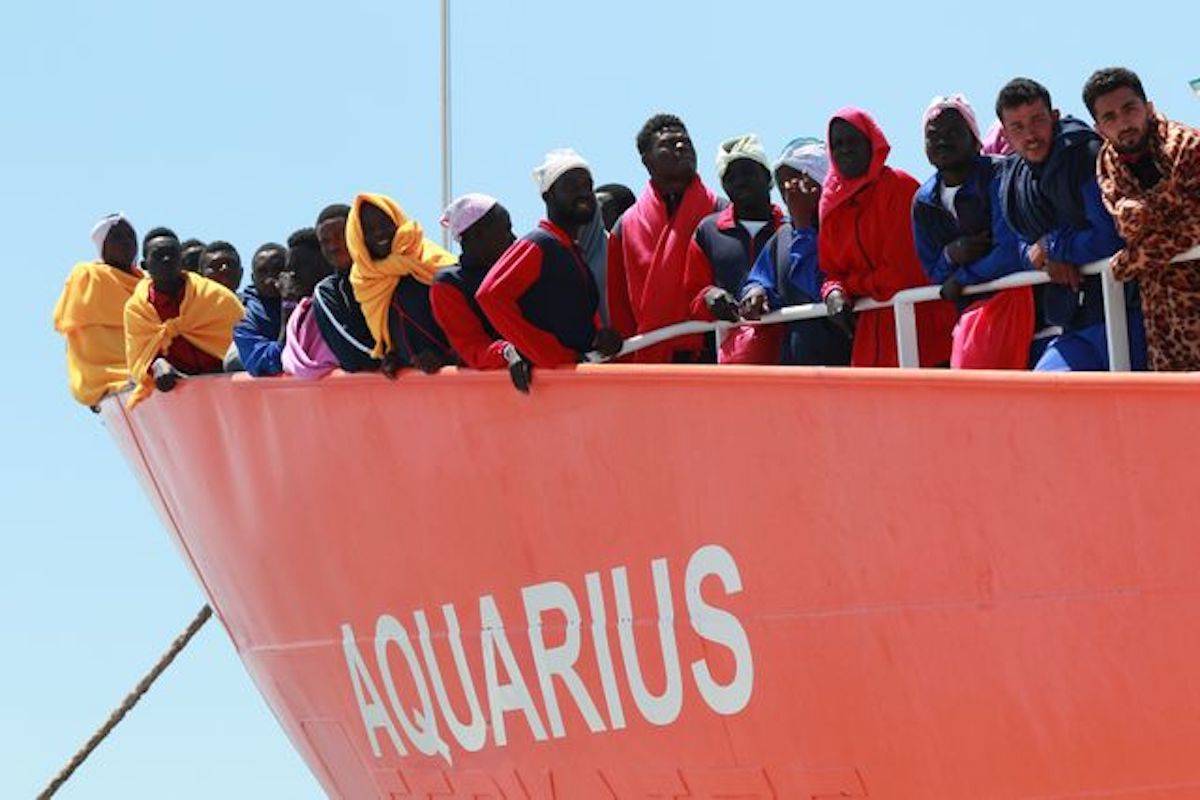Hundreds of migrants were being split between three ships Tuesday for a trip to Spain in bad weather, after Italy’s new government used their plight to pressure Europe to revisit its migration policy.
The 629 migrants — including 123 unaccompanied minors and several pregnant women — were onboard the Aquarius, operated by the charity SOS Mediterranee. The migrants, stuck at sea since Saturday after Italy and Malta refused them permission to dock in their ports, are now heading for Spain, where the prime minister has offered them safe harbour.
RELATED: Migrants remain at sea as Italy-Malta standoff escalates
The migrants were being transferred to two Italian ships, one Coast Guard and one Navy, because of forecasts of deteriorating weather conditions along the route to Valencia, Spain, according to SOS Mediterranee spokeswoman Mathilde Auvillain. Officials in Valencia said they expected the ship to arrive in three to four days, depending on when they depart and weather conditions.
Italy’s new anti-migrant, right-wing interior minister has made good on a campaign pledge to close Italian ports to non-governmental organizations that pick up migrants at sea, which he has likened to taxi services for migrant smugglers.
Matteo Salvini, whose League is part of the populist coalition that took office this month, promised voters that other European countries would be made to share the burden of caring for asylum-seekers arriving in Italy on unseaworthy boats mostly from lawless Libya, also taking particular aim at the aid vessels.
The new Spanish foreign minister said that Spain’s decision in accepting the migrant ship is also meant to push European Union leaders to address the bloc’s migration policies later this month at an EU summit.
“Spain has made a gesture that aims to trigger a European dynamic to stop looking away, allowing one (EU member) to cope with the problem while the rest of us pass the buck,” Borrell told Ser radio late on Monday.
The decision to offer a docking port in the eastern city of Valencia had been a personal and direct move by the country’s new prime minister, the Socialist Pedro Sanchez.
Many Spanish regions and cities have offered to provide long-term support to the migrants, said Valencia’s regional vice-president, Monica Oltra. The Red Cross was preparing shelter and medical assistance to meet immediate needs on their arrival.
The Associated Press



